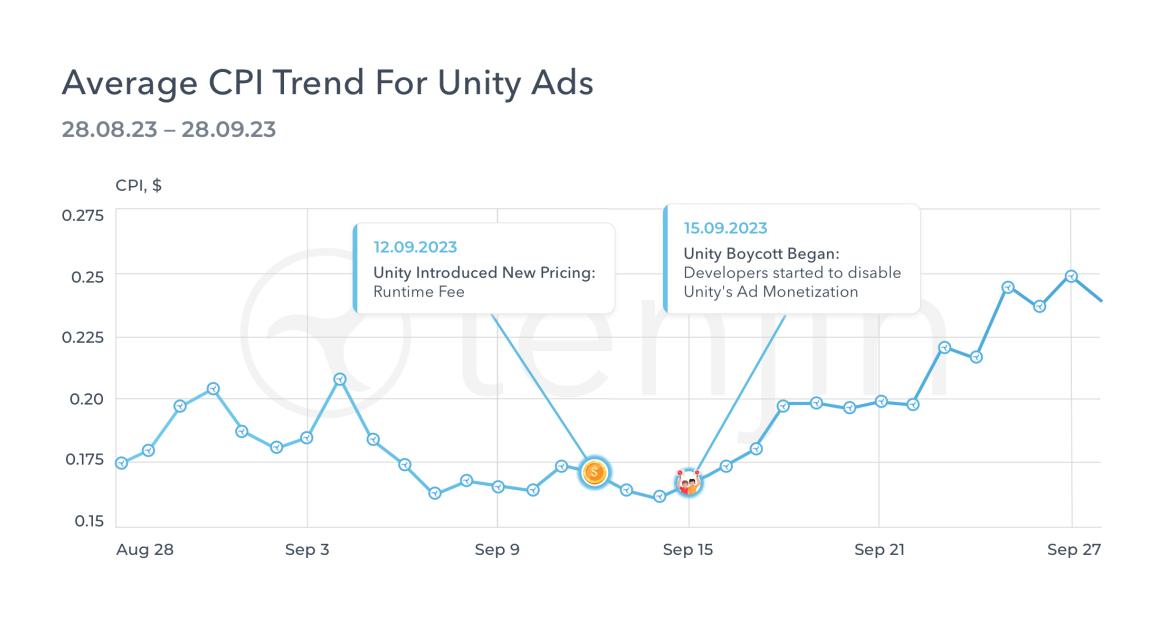Unity's fall from grace
When Unity first announced its runtime fee changes, the mobile game developer community shook. Unity, a long time proponent known to fight for indies, started charging its community of game devs for each install a Unity-made game had.
This fee, however, didn’t apply to games that used Unity’s Level Play mediation, boxing out Applovin’s MAX Mediation, in an attempt to monopolize supply side market share from Applovin MAX and other incumbents. The move was so obviously aggressive that the developer community retaliated, boycotting Unity’s ad demand, no longer enabling Unity’s advertisements even if it had the highest bid. Developers decided to cut off Unity revenue generated through its ad services business.
Since then, Unity ammended its initial fee structure, but developers are still not satisfied. A partial boycott continues to exist with indications that even with Unity’s higher bids not all of those ads are served in mediation platforms (see the rise in CPIs below).

The full collective of developers who claim to join the boycott are included here. Many of these developers provide the greater amount of supply to Unity’s advertisers.
It’s hard to say if developers will ever forgive and forget. It’s unlikely they do, most developers I talked with started learning new open source gaming engines like Godot. Many of them are testing ports of games or developing new games on the Godot engine. Some have even formed development teams aimed at contributing to the open source engine to provide a viable alternative to the Unity Engine. Obviously open source development for Unity Engine parity will take a large amount of time and time is something that most developers are short on.
How does Unity get out of this?